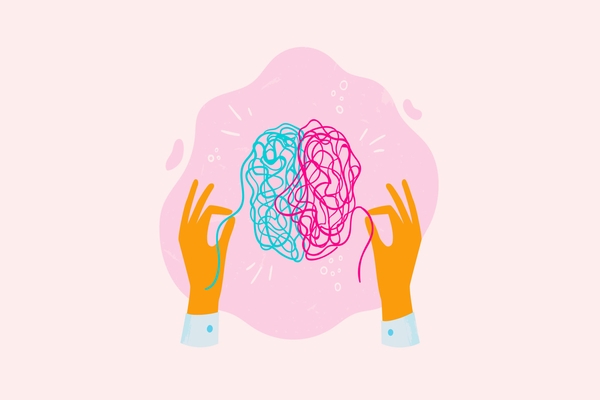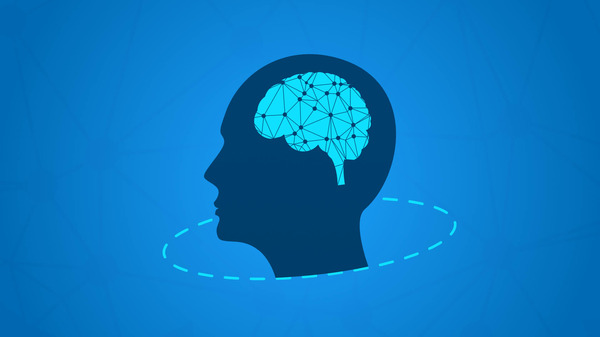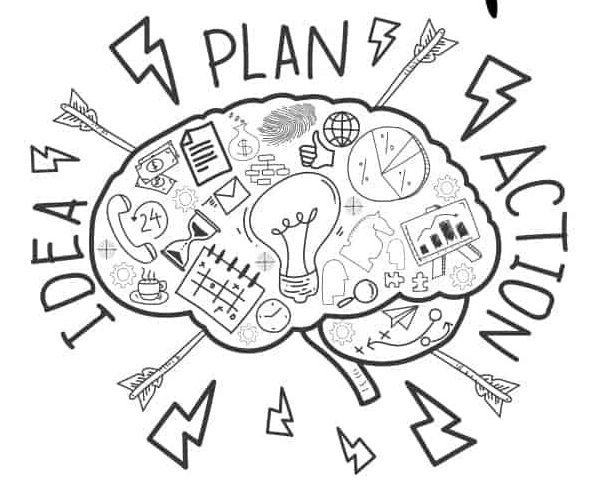Only a mentally healthy person can lead a satisfying, meaningful and productive life. Consistently rising trend of mental disorders in India, as elsewhere, warrants evolving new mechanisms to improve the mental health for affects overall well being of individuals.
The spongy 1.4 kg mass of fatty tissue inside the cerebral cortex called ‘brain’ remains the most intriguing yet least understood organ of human body for two reasons. One is its intricate, highly complex structure and another, its inalienable association with the man’s spiritual aspect that is beyond the jurisdiction of medical and other sciences.
Depending on genetic traits, conditioning, will power and gravitas, an individual brain assumes a distinct permutation and mindset that usually lasts a life time. That makes it imperative to take care of the young ones in formative years. They need to be educated that imbued with about 12 billion neurons in an average human brain, and each of them capable to establish rapport with 25,000 other neurons, a capacity more than that of the world’s largest mainframe computer, each individual can achieve whatever! “Whatever the mind of man can conceive and believe, it can achieve” said Napolean Hill. When a lady conceives, a life comes into being. Refer the outstanding contribution of renowned physicist Stephen Hawking who could make it despite irrevocable neurological damage overriding the normally acceptable medical tenets.
Recall the person, who feels checkmated in the face of perceived hardships, and may even consider or commit suicide, while another person in similar circumstances comes out with a working solution. Life is ten percent what happens to us and ninety percent how we respond to it. The issue is, how we perceive it. “Others seem to be bothering you, but it is not others, it is your own mind,” says Sri Sri Ravi Shankar. A major precept of Neuro-linguistic programming, amalgamated into most institutional programmes the world over that mind and body are part of the one and the same system is but reiteration of what Ayurveda, the ancient Indian system of healing has pleaded viz. mind and body are integral part of a single entity and one cannot perform well with the other being sick.
The foundation of one’s thought pattern, belief system and values is known to be laid the moment one is born, rather from the antenatal period. For ladies on family way virtuosity, congenial ambience and engagement in inspirational books & music were traditionally advised for having healthy children. Skin-to-skin contact with newborn and breastfeed are known to help physical, mental and emotional health of child. Experts link foetal alcohol spectrum disorder and several other diseases in children to pregnant ladies taking alcohol and tobacco. There is much at home, institutions, workplaces, in society, en route, particularly through social media to lose sight of propriety and distract one from what is in one’s long term interests. Rather than promoting feelings of appreciation, gratitude, espousing native culture & local materials, and philanthropy, accent on putting one’s own interests atop negatively impacts the healthy mental growth. The rising proportion of mental illnesses, currently around a fourth of population, warrants evolving a system in which the new generation in particular is provided healthy environs that deters the unwanted values and inculcates a sense to use one’s innate potential optimally in their own and in mankind’s interest.
About a billion people living with mental disorders of various descriptions around the world, especially depression and anxiety, are not only discriminated against, stigmatised and marginalised but also put to emotional and physical abuse and distress. The mentally sick are also more susceptible addictions. Lack of qualified mental health professionals and inadequate diagnostic and treatment facilities add to their woes; they are often deprived of their human rights. Mental disorders are among the leading causes of ill-health and disability worldwide. “Mental health must be an integral part of universal health coverage (UHC). Nobody should be denied access to mental health care because she or he is poor or lives in a remote place”, said Dr Tedros Adhanom Ghebreyesus, Director-General, WHO. Suicide is the worst manifestation of mental disorder, the figure of over 8 lakh people committing suicide is more than people dying by war and homicide combined together. Sadly, suicide is the second leading cause of death among 15 to 29-year-olds. Initiated by the World Federation for Mental Health (WFMH), World Mental Health Day on 10 October annually seeks to raise public awareness about mental health issues. The theme for 2020 is, Mental Health for All – Greater Investment, Greater Access. Everyone, Everywhere. The programmes of the day shall be marked by open discussions of mental illnesses and investments in prevention, promotion and treatment services. Ironically, effective treatment modalities for mental illnesses are available, but access to treatment is a problem, in some countries hardly 10 percent of those who need it receive the required treatment. Addressing the mental health disorders has emerged as a formidable public health challenge of our era. Mental illness, endemic in both developed and developing countries, is rising at epidemic rates. In India, given just 9,000 psychiatrists for the 20 million Indians with mental illness, India is not equipped to handle mental health issues on such a large scale.
Fear psychosis, loss of livelihood, abrupt change in lifestyle including work conditions as inevitable offshoot of Covid-19 have contributed to the burden of mental diseases. “The Covid-19 virus is not only attacking our physical health; it is also increasing psychological suffering: grief at the loss of loved ones, shock at the loss of jobs, isolation and restrictions on movement, difficult family dynamics, uncertainty and fear for the future,” warned UN Secretary-General Antonio Guterres. Yet, with lessons learnt, new lifestyle modalities adopted a working arrangement could be set with sensible and pragmatic approach to life. We must understand that problems in realistic life are not that bad as they are made out.
….. ….. ….. ….. ….. ….. ….. ….. ….. ….. ….. ….. ….. ….. ….. ….. ….. ….. ….. ….. ….. …..
The article initially appeared in edit page (page 6) of Orissa Post on 13 October 2020.
….. ….. ….. ….. ….. ….. ….. ….. ….. ….. ….. ….. ….. ….. ….. ….. ….. ….. ….. ….. ….. ….. ….. …..




